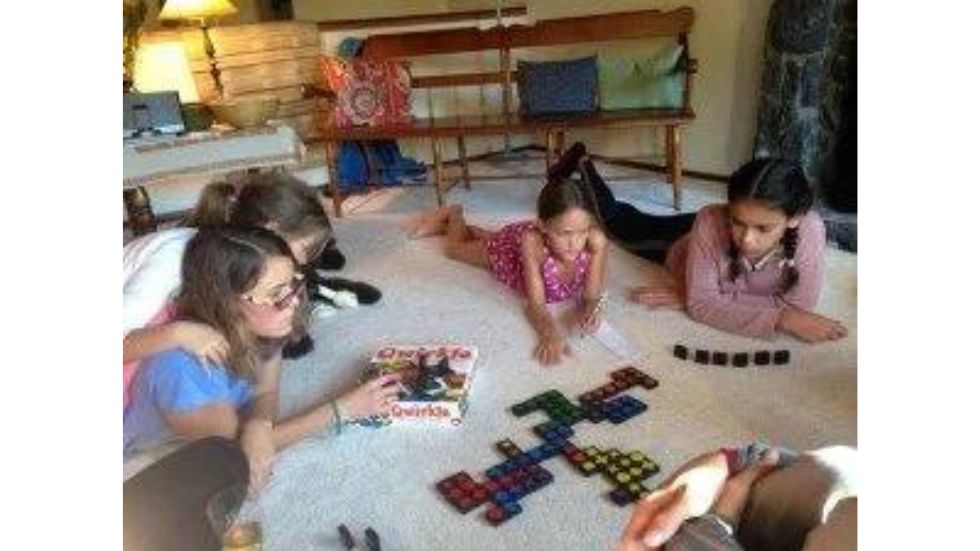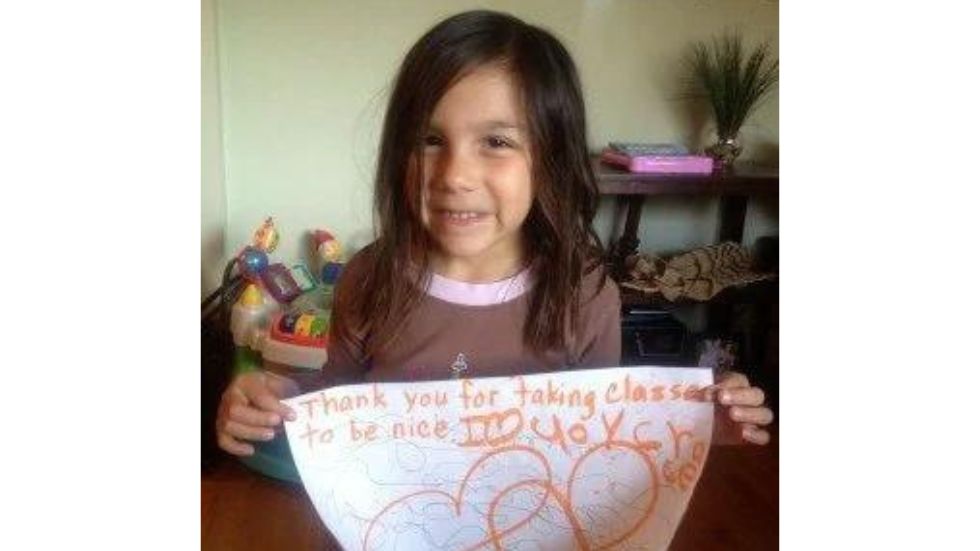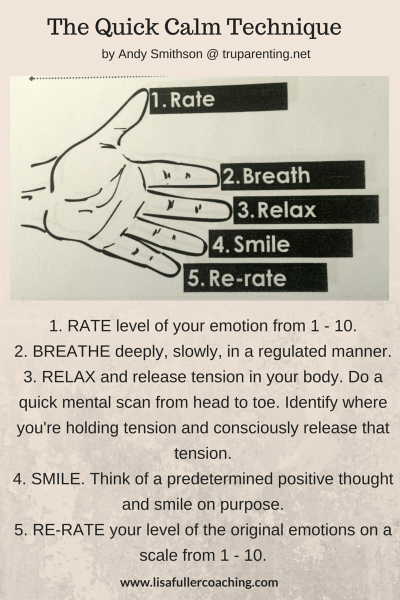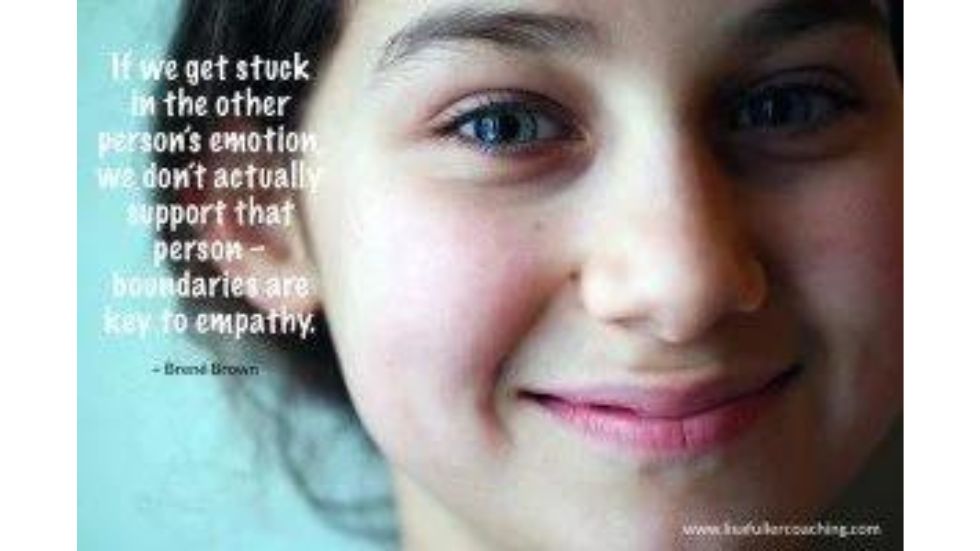
by Lisa Fuller | Mar 26, 2016 | Communication, Connection & Love, Encouragement, General, Parenting, Self-regulation
Shortly after Eric finished up my 7- week parenting series, he sent me this story which beautifully illustrates the power of asking for a hug.
Last week on my way home from work, my wife Stephanie sent me a text that our daughter Grace (5) was being a handful, was in a horrible mood and that she had had it with her.
When I got home, I walked into the house and went straight to Grace and asked her for a hug. At first she turned her back and crossed her arms, and said no.
I then decided to ask her one more time and after a 5-second pause, she turned and gave me a big hug.
Steph said it was like someone flipped a switch on Grace. She went from being in the worst mood to acting as if she was having the best day ever.
It’s amazing to see the kind of impact and dynamics that something as simple as asking for a hug can have on a 5 year old.
Honestly, before taking your class, I probably would have come home and punished Grace for misbehaving and the entire afternoon would have been ruined for the whole family.
Asking for a hug sounds almost too easy, right? Too simple to be true?
However, while it’s simple… there’s a subtle tweak that’s key to the effectiveness of this parenting strategy.
“I could use a hug” vs. “Can I give YOU a hug?”
The first taps into your child’s deep need for significance and belonging. When you ask for a hug from your child, you acknowledge that they make a difference to you and in fact have a positive influence on your life.
In the later, you are reinforcing what your child hears and perhaps feels frequently: That children need help from grownups to feel better.
The parenting tool of asking for a hug (for YOU) is simple, easy, and effective if done from the perspective of genuine connection, genuine desire for your child to assist you! (Plus, who doesn’t love hugs? I love it!)
Try it out.
Ask a friend to be your parent and say these two phrases to you:
Could you give me a hug?
and
You look like you could use a hug.
Do you notice a difference in how you feel after each?
This week look for an opportunity to ask your child for a hug.
I’d love to hear how it goes in the comments below!

by Lisa Fuller | Dec 10, 2015 | Communication, Connection & Love, Feelings & Emotions, General, Parenting
If you’re like me, you’re struggling right now to wrap your head around all that’s been going on in the world.
I don’t pretend to have the answers, but from my perspective it seems like disconnection is at the root of so much of the insanity and violence.
I believe that deepening and strengthening our connections — to each other, to the planet, to our families — is our path to healing.
It might seem simplistic, but I’m convinced that our collective well being and health begins with the health of our families.
And where better to start than with the holidays?
We all crave warm, loving connections with our family and children, this time of year more than ever. Bring on the dark storm so that we can be snug together, play a game, listen to music, and share a meal.
And while there may be heated moments of competition or disagreement, it’s all good because we’re together, making time for each other.
The following gift ideas may help you with this goal.
The list is organized into four categories:
- Tools
- Practices
- Games
- Books

Tools
- Dinner Bell. This is so simple yet almost daily I’m reminded of the power of our dinner bell. Whether I make breakfast, a snack, lunch on the weekends, or dinner, I often notice a wee bit of tension building when my child isn’t eagerly awaiting my labor of love. Then I see the bell and it dawns on me: “Just ring the bell.” I can feel my expectations melting away with that simple action. Message delivered. I can breath and move on.
- Mobilhome. Our devices get in the way of real connection. The
Mobilhome is a super cool way to — without making a stink — let your friends and family know that when socializing in your home, you encourage a device free zone. By establishing a place for everyone’s phones, you’re acknowledging the value of spending undistracted time together. The Mobilhome is an original artisan project created by Yvonne O’Hare (we met at a writing workshop). When ordering one, use the code “holiday2015” until December 15 for an extra 10% discount with free shipping. If it’s out of your price range simply find a basket for phones to call home.

- Positive Discipline Tool Cards. I gift these to parents who
enroll in my Parenting with Positive Discipline series. They are concise and powerful. Topics include: allowance, letting go, setting limits, kindness and firmness at the same time, silent signal and 47 more! Great for when you need a focused idea on one particular challenge.
Practices
- “Passing the Squeeze,” a ritual shared by my friend Catherine, will help you slow down and mindfully connect before meal time. You begin each family lunch or dinner with “passing the squeeze.” Everyone holds hands (people may choose to close their eyes if they wish). The person who cooked starts a hand squeeze in one direction and it gets passed around. When the squeeze gets back to the person who started it, she squeezes hands in both directions and then everyone squeezes hands. For extra credit meditation kudos, the person who cooked rings a meditation chime. Everyone listens for as long as possible before picking up cutlery and chowing down (I’ll let you know how that goes over at our house:).
- Family Meetings… Why have family meetings? They
- Build closeness by creating a sense of significance and belonging for all.
- Give children and their parents a place and time to practice leadership, responsibility, problem solving, empathy and love.
- Establish a forum for communication that becomes increasingly significant as children mature.

Once you begin to hold family meetings you’ll experience even more tangible and intangible benefits for your family!
Join my list to download: Unlock the Power of Family Meetings: Your Free 7-Step Guide.
Games
- Qwirkle. I love this game! Using six unique colors and shapes your mind is challenged to find configurations that conform to the rules (no repeating) and give you the most points. It takes 30 – 60 minutes to play depending on how much conversation and silliness you enjoy. Recommended for ages 6 and up.

- Sorry. Be sure to get the original version. What can I say? This is simple and fun. My son warned me against recommending Sorry because he said it gets people too riled up 🙂 That said, it’s most fun when everyone gets invested, regardless if you’re 7 or 70! It’s equal parts skill and luck… maybe more luck. Old school fun!
- Hunt the Thimble. My friend Anna loves to play this one on Sunday evenings after their family dinner at her mother in-law’s house. Try it when you’ve got friends over or with the extended family. All ages! Here’re the steps to play:
- Find a thimble
- Choose someone to be “it”
- Tell that person to leave the room
- Choose another person to be the hider
- Call in the seeker to start looking (it should be hidden within eyesight, not under or in anything)
- The whole group can yell out “colder!”…”warmer…” Until the thimble is discovered.
- Let the last hider now become the seeker, and so forth until someone rings the dinner bell 😉
Side note to parents of teens… it’s more important than ever to make the time to play games and simply find ways to be together. Don’t rely on your kids to come to you and ask for this time — if they do, consider yourself lucky! When your teen resists family time, I suggest persistence. Let them know that being with them is important to you. Here are general tips from Aha! Parenting for keeping connected to your teen.
Books
My grandfather used to read stories aloud and even when I was too young to understand the content, I have warm memories of sitting on the floor next to him as he read while the entire family listened. The tone of his voice and response of those listening was enough for me. Here are some of my favorites to read to my children.
- The Tale of Custard the Dragon by Ogden Nash. So
 fun and lyrical! Enjoyable for every age! Here’s a taste:
fun and lyrical! Enjoyable for every age! Here’s a taste:
Belinda lived in a little white house, with a little black kitten and a little gray mouse, and a little yellow dog and a little red wagon, and a realio, trulio little pet dragon…. Custard the dragon had big sharp teeth, and spikes on top of him and scales underneath, mouth like a fireplace, chimney for a nose, and realio, trulio daggers on his toes.
- Sarah’s Unicorn by Bruce Coville. While this is great for early readers, I read it over and over to my children when they were 4 to 8 years old. We’re talking pages falling out. It was the hands down favorite for my son who struggled most with reading and finding interest in books. It’s out of print but you can find it used.
- Charlotte’s Web, Stuart Little, and Trumpet and the Swan by E.B. White. What I love about E.B. White is his spaciousness – these stories are told at a human pace and scale. And what could be better than a mouse and a pig for main characters. The Trumpet and the Swan was harder for my daughter to relate to… maybe because she’d been immersed in the Harry Potter series and the change of pace was too dramatic? For ages 6+.

- The Gifts of Imperfection: Let Go of Who You Think You’re Supposed to Be and Embrace Who You Are by Brené Brown. This one is for YOU to bolster your connection with yourself!! I come back to this book again and again as I find its message
 continually challenging and interesting. There are 10 guideposts for living our most excellent imperfect life. Take this a step further by gathering your most curious friends, and meet monthly to explore each guidepost.
continually challenging and interesting. There are 10 guideposts for living our most excellent imperfect life. Take this a step further by gathering your most curious friends, and meet monthly to explore each guidepost.
Cultivate those activities that feed your connection to self and others.
Relax and be present. That’s what your kids want from you more than anything.
To increase the likelihood that you can relax and slow down, focus on  activities like these:
activities like these:
- Take a bath
- Exercise, take walks
- Cook or take out foods that make you feel good
- Make time to read a good book
- Go to bed early
- Do something creative
In general, try to keep it simple, focus on the inside, notice the hilarity
and joy of spending time with kids… generally BE KIND TO YOURSELF. That’s it.

by Lisa Fuller | Aug 15, 2015 | Connection & Love, Encouragement, General, Parenting, Self-care
This summer’s been a doozy. What once felt like a series of mini health crises has come to feel like the norm with appendicitis, stress fractures, depression, drug addiction, cancer and even death becoming a more common part of life.
Last summer, I started writing a post about how to parent when you feel distracted or distraught by a loved one’s suffering.
It’s a hard topic. So hard, that I never completed the post. I couldn’t bring myself to put a bow on it and send it to you. My thoughts never felt right or complete or enough.
Now, it’s back around as I’m dealing with my own health struggles. This week I had two areas of infiltrating basal cell carcinoma surgically removed from my face. With the surgery behind me and plenty of ice packs, I feel a sense of deep gratitude. My doctor described the tumors as nasty and aggressive and I’m lucky that they could be removed.
So I ask for myself and maybe you too – how do you parent when you’re struggling with your own or a dear one’s illness?
This is what I’ve gleaned talking with some of you and pondering the question these last 12 months:
-
- Keep it simple. When your child’s needs feel draining of the little resources you have serve macaroni and cheese or Cheerios and let them watch TV. It’s okay.
-
- Prioritize. Allow what’s most important to rise to the top. Family, food, sleep, and exercise (if possible) make up my essential list.
-
- Say no mostly and yes only if that YES will enhance your life. Time and energy are limited. Use yours wisely.
- Reach out intentionally. Ask for help — as my friend Liz says, “you may need to get over yourself” to do this. Remember that close friends want to lend a hand, particularly when a bigger situation leaves them feeling helpless.
I “got over myself” this past week when my friend Carolyn came bearing flowers the day before my surgery. Having had a similar experience, Carolyn warned me that the hardest part for her had been after the procedure, when she had to remove and replace the bandages. I immediately asked if she would be willing to come over and help me do that. She said yes, and little did I know just how important it was to have her for moral and physical support. With 22 stitches across my hairline — and as the doctor put it, “too many to count” in my nose — I was weak and close to fainting. It took us an hour and a half to remove and replace all of the dressings that first time. I can’t imagine what it would have felt like to do this alone.
-
- Stick with the facts. Depending on the age of your child, share relevant factual information, but only the surface story. They don’t need to know the details and certainly not your “what if” fears. While your fears may be in the realm of possibility, they’re not the facts.
-
- Be childlike. As much as you can, allow your child’s aliveness and awe of life to touch you and lift you into the present.
-
- Dare greatly by saying no to guilt. Instead, accept that you may be more foggy and distracted than you’d like to be with your kids. It’s okay. Don’t add parent guilt to the list of your full bucket of worries. In Daring Greatly Brené Brown writes, “To set down those lists of what we’re supposed to be is brave. To love ourselves and support each other in the process of becoming real is perhaps the greatest single act of daring greatly” (Page 110).
- Lower your expectations. Finally, be realistic about how much your kids, depending on age, will be able to empathize with you or the situation. In my experience that’s NOT MUCH. They don’t get it, nor should they.
 A few years ago, my brother’s best friend and brother in-law, Steve, died unexpectedly during a surgery. Because Steve was beloved by his community as a volunteer firefighter during the Eastern Long Island pine barren wildfires, acting as Chief of the fire department at the time of his death, founder of the junior volunteer firefighter training program and a village civil servant, the community put on a huge uniformed procession for the funeral. Being family and a close friend, my brother delivered the eulogy. In the midst of the long funeral procession through town, his 8 year-old son Aidan turned to him and asked in a tired voice, “when is this going to be over?” My brother was both heart-broken and relieved by the question. How could Aidan, who’d loved Uncle Steve deeply, be ready to move on? Be so oblivious to the gravity of the situation? Be so cold as to be DONE with Steve? At the same time – in Aidan’s question my brother heard hope and the possibility that life could go on – that tomorrow would eventually arrive and maybe it was sooner than my brother thought possible. In his son’s words were the innocence and gravity of the truth that we do go on, even when we lose the unloseable friend, even when we suffer unimaginable pain.
A few years ago, my brother’s best friend and brother in-law, Steve, died unexpectedly during a surgery. Because Steve was beloved by his community as a volunteer firefighter during the Eastern Long Island pine barren wildfires, acting as Chief of the fire department at the time of his death, founder of the junior volunteer firefighter training program and a village civil servant, the community put on a huge uniformed procession for the funeral. Being family and a close friend, my brother delivered the eulogy. In the midst of the long funeral procession through town, his 8 year-old son Aidan turned to him and asked in a tired voice, “when is this going to be over?” My brother was both heart-broken and relieved by the question. How could Aidan, who’d loved Uncle Steve deeply, be ready to move on? Be so oblivious to the gravity of the situation? Be so cold as to be DONE with Steve? At the same time – in Aidan’s question my brother heard hope and the possibility that life could go on – that tomorrow would eventually arrive and maybe it was sooner than my brother thought possible. In his son’s words were the innocence and gravity of the truth that we do go on, even when we lose the unloseable friend, even when we suffer unimaginable pain.
I’ve decided that it’s okay that I don’t have a bow on this one. Its a question that doesn’t have a neat answer.
Please chime in with your thoughts and questions in the comment section. How do you parent when you feel overwhelmed by your own or a loved ones health challenges or a death?
What advice would you add?

by Lisa Fuller | Mar 17, 2015 | Communication, Connection & Love, Discipline
Recently I received an email (with this photo) from Eric, a dad in my parenting class.
There have been so many changes for the better that have come up over the last 8 weeks since we started taking your class.
The screaming and yelling in our house is now filled with laughter and smiles. Everyday I tell my wife how proud I am of the way she handled a specific situation and I compare it to how we would have handled it before attending your class.
We have a new story every day and find ourselves constantly turning things into games or putting our children in the same boat.
I never realized how firm my discipline style was and the potential negative results that can come of that parenting style.
The fact that my daughter has noticed a difference and that she’s happier to be around me is really a life-changing event for me.
Thank you again!
My heart jumped for joy when I got this for two reasons:
- This sort of transformation is WHY I do what I do(!!!);
- I know exactly how he feels.
I, too, had been unaware of how my style impacted my son until the day he brought it to my attention.
I thought I’d made a simple request that day, many years ago. My 7-year old, Sunny, came in from playing outside and I told him to go wash his hands.
After I’d said the words and he’d gone into the bathroom, I was aware of a shift in energy — it felt like something dark and heavy came in the room.
When he came out, I could see hurt in his eyes, tears squeezing out of them as he said, “Why do you have to talk to me in that mean voice?”
My heart hit the floor. This bright, cooperative, sunny child never complained.
I took a breath. The look on his face along with his words woke me to the harshness of my tone that while unconscious, was undoubtedly powerful. I’d been oblivious.
I can’t quite remember what happened next.
Likely I asked him a question or two, put my arm around him, said “I’m sorry” and proceeded to feel “I am a horrible mother.”
My tone could have been caused by not knowing what to cook for dinner, exhaustion, an annoyance I felt about who knows what. What matters is I am clear it wasn’t about him.
His hurt shone a spotlight on my lack of awareness. Like the brave dad in my class, I never realized how my style negatively impacted my son until that day when he directly told me.
I felt shocked and grateful at the same time. Sunny directly told me that my words hurt him. This I considered a mini victory — a sign that maybe I wasn’t such a bad mom after all.
My young son trusted me. In our relationship he could be vulnerable and tell me how he really felt.
Children are sensitive.
Alfred Adler, whose work lays the foundation for Positive Discipline said that children are tremendous perceivers. Children soak up the energy and feelings around them. He went on to explain that children make meaning of their perceptions and not always in ways that make sense to parents.
For example, children can make very different meaning from the same event. Siblings can perceive the same event in very different way.
Here are some examples ….
Parent Action → Child perception and meaning making
- Mommy’s voice is mean → Mommy doesn’t like me/I’m bad
- Mommy’s voice is mean → This hurts and I’m going to tell her her voice is mean
- Mom & Dad are fighting → I must have been really bad
- Mom & Dad are fighting → They had a hard day, I’m going to leave the room
- Mom & Dad are moving to Maine → I wonder where I will go?
- We’re all moving to Maine → I’m excited
- Baby sister cries and gets noticed → I need to cry to get noticed
- Baby sister cries and gets noticed → I’m going to be a big helper
[tweetthis hidden_hashtags=”#parenting”]For better or worse what your child perceives is their reality![/tweetthis]
You may not be able to control how your child perceives reality (especially as it applies to you and your interactions with them). You CAN influence it by consciously softening your tone, acting with care, and choosing more positive words.
When my son came in that day, I could have said, “Sunny, let’s take a look at those paws of yours. They could use a good scrub before dinner.”
A helpful catchphrase to bring kind and firm to life is CONNECT BEFORE CORRECT!
I didn’t connect with him before sending him off. As a result my son woke me up to the power of my tone and energy.
I continue to be imperfect — at times unwittingly putting unwarranted anger on my kids. However, I do this far less than I used to.
The wake up call my son gave me is one of many I’ve received since becoming a parent. They all work together to move me in the direction I want to go as a human being:
- Being more conscious of my energy and tone;
- Connecting before I correct (kind and firm);
- And when all else fails, separating myself from my kids when I know I’m on the edge.
Eric got this same wake up call by attending my Parenting with Positive Discipline series. Once he starting being kind AND firm he realized his former style had a negative impact on his relationship with his daughter. He’s been amazed that such simple changes like asking for a hug or making a problem into a game, can be so life altering.
CONSIDER⇔SHARE⇔ACT
In what circumstances have you been surprised by your child’s interpretation of your behavior?
Does being conscious of your impact help you? If so, how?
By sharing your experiences in the comments below, you add to this conversation and support many parents by showing them they’re not alone.
If you haven’t already done so, join me on this journey!
Wanna talk? Schedule a time here.

by Lisa Fuller | Feb 16, 2015 | Connection & Love, Encouragement, Feelings & Emotions, Mutual Respect, Parenting, Self-care, teenager
We want our kids to be happy and feel good about themselves — knowing they’re struggling can feel unbearable.
Today’s post is about how to deal with your emotions around your child’s disappointment — a question that Michelle so eloquently asked last time. Here’s my own poignant parenting story….
Years ago when my son, I’ll call him Sunny, was 11 or 12, baseball season had ended and he wanted, with all his heart, to make the all-star team so that he could continue to play. He’d been chosen in years past but knew it was competitive. Being Sunny, he was optimistic and it was clear that playing more baseball was the most important thing in the world to him — hands down. A perfect recipe for parental anxiety.
Each day he’d come home and ask, mom, did the coach call? A look of hopeful anticipation in his eyes.
My heart broke as I had to tell him, 3 or 4 days in a row that no one had called. Silence. Are you sure? Ouch.
Sunny was the kid who went through life, like a duck, letting harsh things that happened to him roll right off. So when he uncharacteristically invested himself in this outcome, it was all the more painful to witness.
At the time I knew that a rescue attempt was ill advised. I felt helpless and didn’t know what to do. While it sounds like a minor letdown now, this disappointment was HUGE in his life, and I was at a loss for how to support him.
Looking back I think his dad or I could have shared our own painful experience if only to join him in that dark space.
I doubt it would have made him feel better but company always helps.
As the parent, I needed to also take a stance that would help me better cope with the urge to jump in and make things better.
As a coach, I often help clients find alternate points of view on an area of their life where they feel stuck.
Below is an example of different perspectives you can step into to shift YOUR experience when your child goes through their inevitable disappointments.
GRITTY VIEW: The research is clear that children who’re able to persevere through trials and tribulations have an essential characteristic for success – grit.
While they’ll remember epic disappointments, if they’re able to weather them with a sense of grounded security, your kids will more likely learn to forge ahead, a quality that will undoubtedly serve them well in life.
Parental fixing (or on the flip-side, shaming) blocks your child from learning this valuable lesson. Fixing and shaming, while they look different, convey the same message to your kid — I don’t believe in you.
[tweetthis hidden_hashtags=”#parenting”]Don’t treat your son like a prince unless his father’s the King, if you do, life will be a rude awakening.[/tweetthis]
I don’t remember where I heard this but I love its clear wisdom.
POETIC VIEW: “For after all, the best thing one can do when it is raining is let it rain.” ―Henry W. Longfellow
Broadening your perspective through poetry and philosophy can be just the tonic you need to pull you out of the painful, cramped feeling of “not enough” that tends to overwhelm you when your
child feels badly.
 MINDFUL VIEW: Practicing mindfulness strengthens your ability to have boundaries.
MINDFUL VIEW: Practicing mindfulness strengthens your ability to have boundaries.
The Quick Calm Technique created by Andy Smithson of truparenting.net is a tool that when practiced can move you from heated to less heated 🙂
Here it is in a nutshell:

Click above to learn more about the entire Quick Calm Toolkit
Use this technique to bring yourself down from anger, anxiety, sadness… these steps enable you to respond more proactively — more mindfully — to any situation you find yourself caught up in. You have power over how you feel.
PASSIONATE VIEW: When you take time to nurture your own passions, you get less tied up in knots about the minutiae of your child’s life. This helps you avoid the unwitting substitution of your child’s experiences for your own.
Here are some examples of activities (outside of work and parenting) that parents have shared with me that bring meaning and passion to their lives:
- join an adult sports team
- volunteer in an underserved school
- write a blog or novel
- coach a team (outside of your child’s)
- volunteer at a hospital
- train for a triathlon
If you don’t want to do it for yourself, then you’ve got to do it for the sake of your kid. Only when you nourish yourself and cultivate your own interests will your child see a way to do this for herself.
MY VIEW: One of the gifts I’ve found through using Positive Discipline is a path to keep things simple.
If I’m bending over backward to make something happen for my kid, I hear that voice inside warning me something’s off or as Michelle put it — “THAT’s INSANITY — DON’T DO IT!”
Still the impulse and overwhelming sadness remains.
Don’t push it away. Rather, let yourself feel sad and have a chance to heal from your own old wound. When you get triggered by your child’s disappointments — take that step back from your kid and look inside — work on your own or with a therapist to experience your not so buried feelings so that you can move on rather than continuing to stuff it down or overreact to events in your child’s life. Be real and feel your feelings.
When you feel stuck in your own or your child’s disappointment, try one of these perspectives or cultivate a view of your own. Standing in a different place could be just the reset you need to reorient yourself and move forward in the direction you want to go.
If you haven’t already done so, join me on this journey!
Wanna talk? Schedule a time here.

by Lisa Fuller | Jan 29, 2015 | Communication, Connection & Love, Encouragement, General, Parenting
Q: As the mother of a middle school girl, I struggle to be empathetic without jumping on the roller coaster of her ever-changing moods, emotions and dramas. And, as a woman in her late 40s, my emotions are often a 6 Flags of hormonally-induced thrills, so staying detached feels nearly impossible at times
Recently my seventh grader tried out for the school musical. After a series of micro disappointments this Fall (not making the “A” soccer team, getting put into an advisory group without any good friends, being just slightly outside of the ‘cool’ group, etc.), she was serious about getting a good part for the show. She practiced her song with a singing teacher several times and felt good about it.
Several days went by while she waited for the cast list to be posted. I worked on shifting her language away from ‘good’ and ‘bad’ parts in the show, to some limited success. I wanted to support her enthusiasm but it was draining to stay positive given my fear of the potential bad news ahead.
This daughter can be fairly stoic, but when she saw the cast list, she ran up to her room and sobbed so loudly I was afraid she would choke.
After a few minutes of trying to let her release her disappointment on her own, I went in to check on her. With your thoughts of empathy fresh in my mind, I resisted the temptation to tell her the emotions would pass or it didn’t matter or that the part was probably better than she thought, blah, blah, blah.
Instead, I let her cry, supporting the wildly strong feelings raging through her. Unfortunately, it was just a matter of time before I was crying too, and then we were both sobbing at the injustice of the world (did I mention I am a pre-menopausal woman with raging emotions?)
I managed to get myself together and put her to sleep, but then I could not stop crying. I just felt so sad for her and could not put it away. It took all the strength I had not to email the drama teacher and ask her if there was any way to revisit the cast list. Which is just a simply INSANE thing to even think, let alone seriously consider!
So here’s my question: how can we support our children with their dreams, projects, efforts and goals (especially our daughters) without getting enmeshed in the outcome? How can we let our older children navigate the disappointments and challenges of life without getting sucked into the emotional turmoil that goes along with the journey? Where do you draw the line between empathy and over involvement/attachment?
A: First, Michelle, congratulations on your success in avoiding many of the common barriers to empathy. What you did was no small feat — staying out of judgement, taking her perspective and touching a place in yourself (maybe a bit too deeply) that understood her feelings.
Simply defined as “the ability to understand and share the feelings of another,” empathy is nuanced. While you were able share your daughter’s feelings, it proved difficult to pull yourself out.
To answer your question, here are my ideas to strengthen your empathetic response even more while simultaneously moving you out of the helicopter parenting zone altogether.
From Helicopter Parenting to Empathy
- Validate her feelings. In your story Michelle, you give nice examples of how you did this — letting her cry and stay in her feelings, etc.
- Resist the urge to fix. You write, I resisted the temptation
 to tell her the emotions would pass or it didn’t matter or that the part was probably better than she thought, blah, blah, blah. This is cause for celebration! When you’re done partying let’s look at what you describe your fear of the potential bad news that she didn’t get a “good” part. Your feeling of fear fuels your underlying belief that something needs to be fixed. You can do one of two things here, keep your fear AND bite your tongue, which
to tell her the emotions would pass or it didn’t matter or that the part was probably better than she thought, blah, blah, blah. This is cause for celebration! When you’re done partying let’s look at what you describe your fear of the potential bad news that she didn’t get a “good” part. Your feeling of fear fuels your underlying belief that something needs to be fixed. You can do one of two things here, keep your fear AND bite your tongue, which
you did, or, with the help of a friend, coach or therapist, internally shift your perspective from disappointment = bad to disappointment = opportunity for growth. (I’ll go into this more in my next post). What I’m suggesting is more than a surface shift — that’s why it requires support.
- Share your own story of disappointment. By sharing a simple one sentence story of a time you didn’t make the team or you weren’t invited to the party, you let your daughter know that she’s not alone and most importantly, that she belongs. (A sense of belonging in family is profoundly impactful to a child’s sense of well-being.) For example, I remember when I longed to be chosen to play the role of Mary in the church nativity, yet I wasn’t picked and I felt terribly sad. One sentence that’s it. I can hear parents ask “Isn’t there more to say than that?!” No — children are self focused, your goal here is to simply let them know you’ve been there — voila.
- Be present. It’s not what you say that will make a difference, but simply your presence, your ability to be with your child. Ground yourself in what’s most important to you, tuck your phone and other distractions away and like the Beatles so beautifully sang, let it be.
- Practice mindfulness. Mindfulness strengthens our ability to have boundaries which according to Brené Brown’s research is key to empathy. If we get stuck in the other’s emotion, we don’t actually support that person – boundaries are key to empathy.
One of the many gifts in your story is how fully engaged you are in your daughter’s life.
Thank you Michelle for sharing your story and question, deepening our understanding of empathy. I appreciate and honor your willingness to be vulnerable — it can feel scary to divulge our struggles when we’re “supposed to be” the all-knowing parent!
Are you wanting someone to walk you through a parenting challenge like the one that Michelle shared? If so, visit my schedule to find a time for us to meet via phone or Skype.
I know that parenting is important to you — it’s worth taking time for yourself, so that you can be the parent you want to be, even in your most challenging circumstances.
Take a moment to share in the comment section below how you relate to Michelle’s story and what you want to remember from today’s post.
If you haven’t already done so, join me on this journey!
Wanna talk? Schedule a time here.










 continually challenging and interesting. There are 10 guideposts for living our most excellent imperfect life. Take this a step further by gathering your most curious friends, and meet monthly to explore each guidepost.
continually challenging and interesting. There are 10 guideposts for living our most excellent imperfect life. Take this a step further by gathering your most curious friends, and meet monthly to explore each guidepost.




 MINDFUL VIEW: Practicing mindfulness strengthens your ability to have boundaries.
MINDFUL VIEW: Practicing mindfulness strengthens your ability to have boundaries.

 to tell her the emotions would pass or it didn’t matter or that the part was probably better than she thought, blah, blah, blah. This is cause for celebration! When you’re done partying let’s look at what you describe your fear of the potential bad news that she didn’t get a “good” part. Your feeling of fear fuels your underlying belief that something needs to be fixed. You can do one of two things here, keep your fear AND bite your tongue, which
to tell her the emotions would pass or it didn’t matter or that the part was probably better than she thought, blah, blah, blah. This is cause for celebration! When you’re done partying let’s look at what you describe your fear of the potential bad news that she didn’t get a “good” part. Your feeling of fear fuels your underlying belief that something needs to be fixed. You can do one of two things here, keep your fear AND bite your tongue, which
